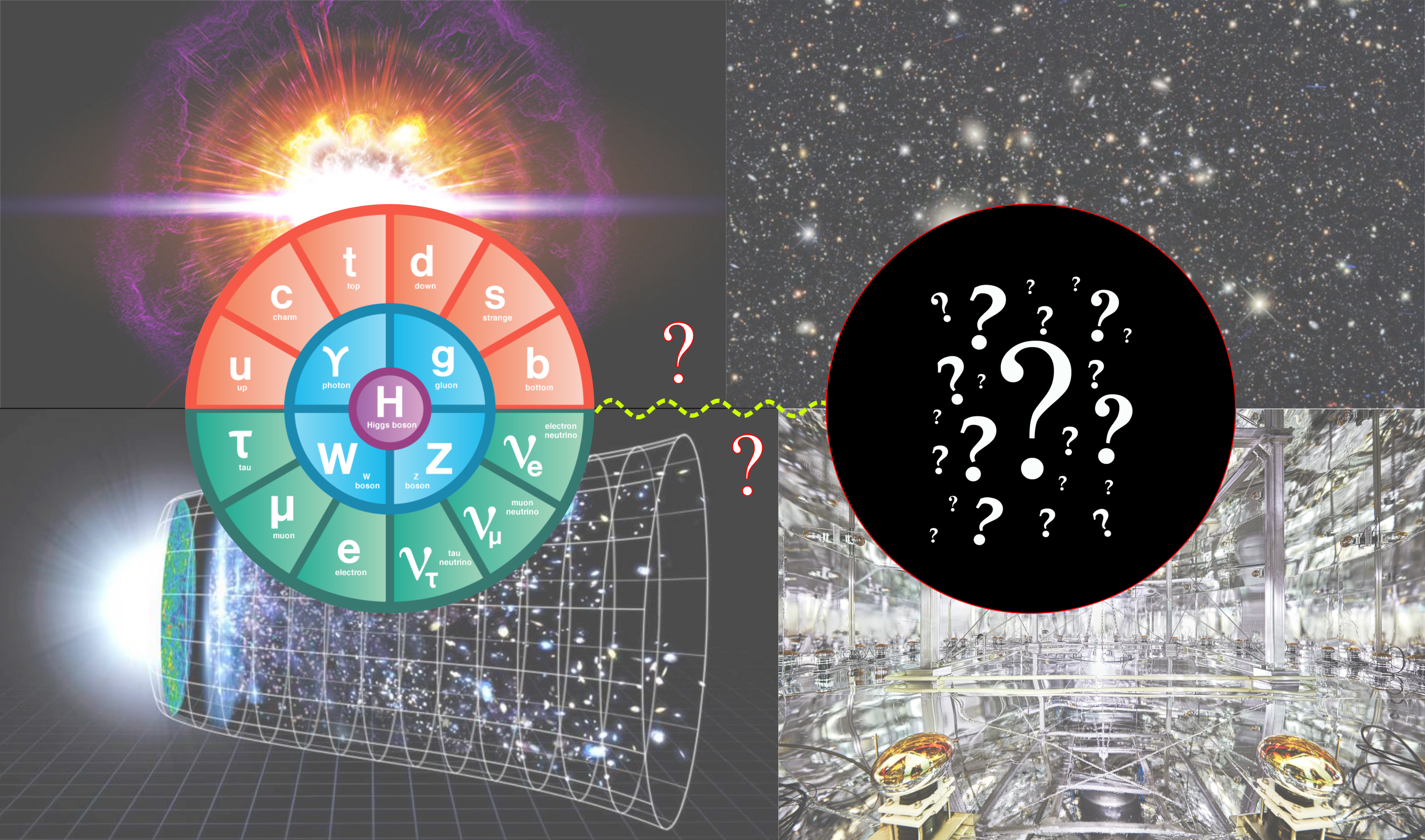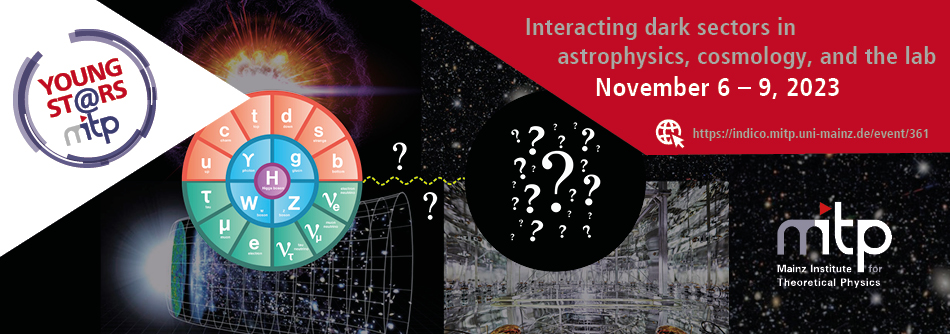
The Standard Model of particle physics is extremely rich and complex, yet only accounts for a meagre 5% of the total energy budget of the universe. The precise nature of the remaining 95% remains a mystery, although we do know that about 25% must have a matter-like equation of state (hence termed “dark matter”), whereas the remaining 70%, termed “dark energy”, is postulated to contribute to the observed acceleration of the universe's expansion. The minimalist CDM model, consisting of a cold, non-interacting dark matter and a cosmological constant, has successfully explained a huge swathe of observations across a wide range of physical scales. Nonetheless, there remains the possibility that some new physics (beyond CDM) that so far has largely evaded our observations resides in the dark sector.
The manifestations of dark sector physics can be ubiquitous — in terrestrial laboratories, in compact object environments such as supernovae and neutron star mergers, and in the nascent Universe itself. In particular, interacting dark sectors can have a rich underlying physical structure, with varying impacts across these different arenas, which needs to be clearly understood and assimilated. For example, associating a “dark portal” with the Standard Model can have a drastic impact on the evolution of our Universe and of compact objects, as well as laboratory processes such as meson decays, Higgs decays, Z-decays and so on. If dark matter is indeed a component of a rich dark sector, then it will be necessary to coordinate observations from these various subfields to elucidate its nature fully.
The main objective of this workshop is to gather researchers in particle, nuclear and astrophysics to articulate how combined theoretical and experimental efforts can advance our understanding of the breadth of the impact of these dark sectors.
** Due to limited slots, talks are only by invitation. But we welcome everyone to sign up to listen to the talks and participate in asking questions.

